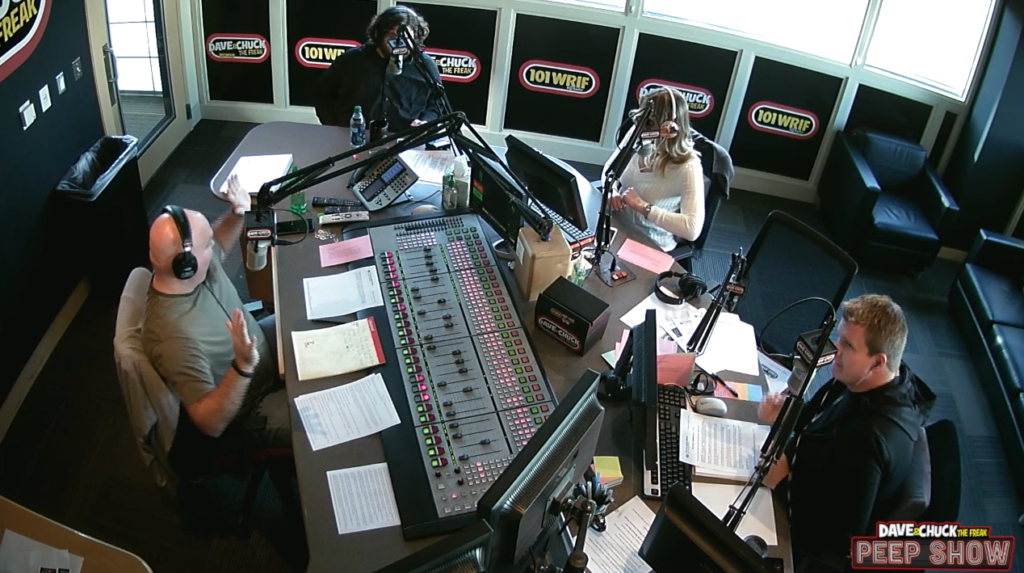![]()
One of my jobs as a consultant is to recognize great ideas when I hear them, make them better, and then share them with clients that could benefit from them.
Now, you may call that stealing, but to me, it’s an art form. Not just anybody can do it, and it takes a great eye and ear to catch great concepts, improve upon them, and then get them to the right people. It used to be easier pre-Internet. Today, you can listen to the KROQ the morning after Bean goes away. You can tune into KISW’s “Live Day” in real time. And when there’s a disaster, you can navigate to local stations in the market where it happened to hear news coverage.
So, that puts even more pressure on consultant like me, along with some of the great personality coaches out there, to connect great content and bits with shows and hosts.
A tour around morning shows across the U.S. (and I suspect globally) reveals a lot of personalities are using many of the same bits – “Second Date Update” and “War of the Roses” come to mind. There are some markets where these bits are actually heard on two different stations, sometimes using different names.
But where do these great bits come from? Who innovates them? And how can personalities best recognize when perhaps they’re onto something?
Who are the people out there on high wires with no nets who we can we learn from?
Stand-up comedians, of course.
Is there any more challenging task across the show business spectrum than walking out on a stark stage with a single mic and telling stories and jokes to a bunch of drunk people sitting in the dark? It’s one thing when you become famous – people will laugh at just about anything. But when you’re an unknown, it takes incredible courage to to take the stage and try to make people laugh.

But unlike radio hosts – essentially talking to an invisible audience – standup comedians learn pretty quickly what’s working and what’s not. And so to get a better understanding of the creative process, and what it takes to develop great content, Vulture’s Bethy Squires checked in with 15 comedians, and climbed into their heads.
The question was, “Which bits you thought sucked turned out to be your most successful?’
It should be required reading for everyone on the air giving humor their best shot. And it’s loaded with video examples of these bad-bits-that-turned-out-great so you can study these story arcs, as well as hear audiences react to them. (Note that some are a bit NSFW.)
Squires didn’t just ask these 15 funny people to name the bit – she also asked them to explain their process – specifically, what they learned from discovering a seemingly bad bit could actually become a standup home run.
Below are some of the best pieces of advice from her story:
Catherine Cohen learned that being loud, big, and musical could be effective (at least for her). And that meant incorporating music and singing in her bits.
“You just have to lean into what feels good. Follow that impulse. If you’re trying to write a certain type of way, and it always feels painful, maybe it’s not the right thing.”
Jo Firestone pointed out that sometimes a bit is better meant for someone else on the team – especially in the context there are many ensemble radio shows with multiple teammates.
She handed off a bit that wasn’t working to another comedian. They both did the bit – and it worked for him:
“I even went first, so it would be pretty clear that he was stealing my joke. He did it after me, and he pretty much crushed it. He did it exactly the same (as me). We tried it again,, where he just did it, and it crushed again. It turned out maybe it just needed a man’s delivery.”
Nate Bargatze tells a story about a Starbucks encounter gone wrong:
Would a psycho even order milk with ice? Watch my episode of The Standups on @Netflix: https://t.co/SPd99cCs89 pic.twitter.com/FwVr7juJc0
— Nate Bargatze (@natebargatze) September 12, 2017
And his advice: “You’ve got to trust that you’re normal. I always say that I’m the most average person. My taste is descriptive of America, what I’m into: sports, chain restaurants. Over time, you just learn, “If I’m doing this, then I bet other people are, too.”
Larry Owens started wearing wigs to do imitations of women like Viola Davis and Oprah Winfrey, but wondered whether that was a smart idea.
“Just because something doesn’t work for somebody else doesn’t mean it won’t work for you.”
Jena Friedman talked about doing a tasteless joke – about Jeffrey Epstein and Ted Bundy. It worked, and here’s how she explains it:
“Confidence is almost more important sometimes, in a way that is scary. If people trust that you’re coming from a place of empathy, they’re go along with you on a journey.”
And speaking of confidence, Atsuko Okatsuka talks about how an uncomfortable topic can create tension – and the joke releases it. But to pull that off, you have to be sure of yourself:
“More and more, I’ve learned that it comes down to confidence. You might think you’re niche; you might not think you’re for everyone. But if you’re confident in your joke-writing technique, it’s actually more relatable than you think.”

Some good stuff here. And to summarize these takeaways, and how they might apply to radio talent:
- Lean into humor and bits that make you comfortable. Sometimes doing someone else’s benchmark just isn’t going to work for you. But when you find something in your comfort zone, it’s a sign you’re onto something.
- Sometimes a great bit ought to go to someone else on the show. Evaluating who on the team is best suited for a joke, a bit, or a parody is a key to making it work.
- Reflect what real people are all about. Chances are that if you and your show mates are into it, other people will be, too.
- And the flip-side: if might not be working for someone else, but it could work for you. You may comes across a bit that isn’t funny or doesn’t deliver, but perhaps your treatment can make it successful.
- Confidence goes to the heart of being funny. This sentiment was expressed by two of our standup “coaches.” And it comes down to winning over the trust of your audience, giving you permission to try something that’s different.
Of course, there’s no substitute for doing comedy in front of a live audience. I always encourage morning talent to take improv/standup classes, and test drive new material in front of real people. It’s dangerous, but effective.
Writing, producing, and delivering comedy is a heavy lift. Those who do it for a living should take inspiration from whoever and wherever they can.
A favorite quote comes to mind:
“Dying is easy. Comedy is hard.” – Actor Edmund Gwennn (Santa Claus in “Miracle on 34th Street) on his death bed
Thanks to Mike Stern.
- What To Do If Your Radio Station Goes Through A Midlife Crisis - April 25, 2025
- A 2020 Lesson?It Could All Be Gone In A Flash - April 24, 2025
- How AI Can Give Radio Personalities More…PERSONALITY - April 23, 2025




Great article. As an ex radio guy now doing stand-up, the one thing that comes to mind, is with comedy you get instant ratings. Working in radio and doing comedy, you have to wait for the PD to call you into the office and rake you over the coals. The one thing I’ve noticed is that with morning teams, is that they always try to out do each other with lines. They tend to jump all over the punch line coming from another member of the team. It’s a lot like having a heckler at a live show. For a live stage, sometimes a bit might take 6 months to develop and it can be ruined with one loud mouth. That’s work down the drain in that moment. Thanks so much for the super article Fred!
“Sometimes doing someone else’s Benchmark just isn’t going to work for you.”
Think about that statement.
If comedians steal other comedians content they are blackballed. In our industry it’s encouraged. Why does radio think stealing content is acceptable? What did i miss?
You missed nothing. As consultants, we often think of ourselves as well-compensated thieves. That said, it’s always best when shows come up with their own stuff.